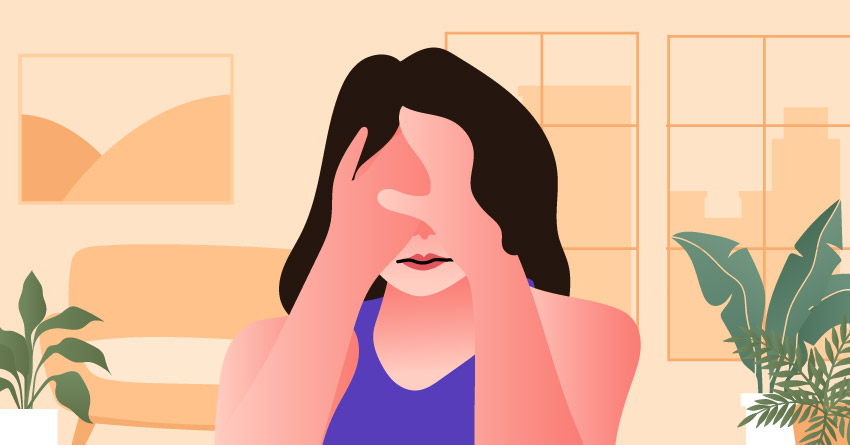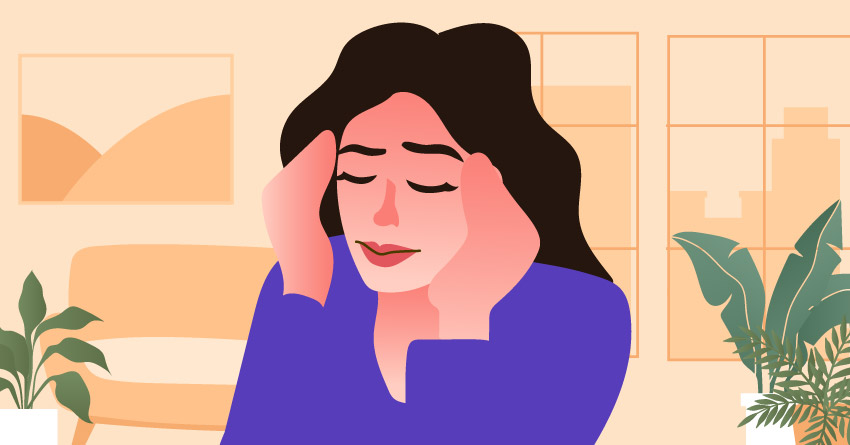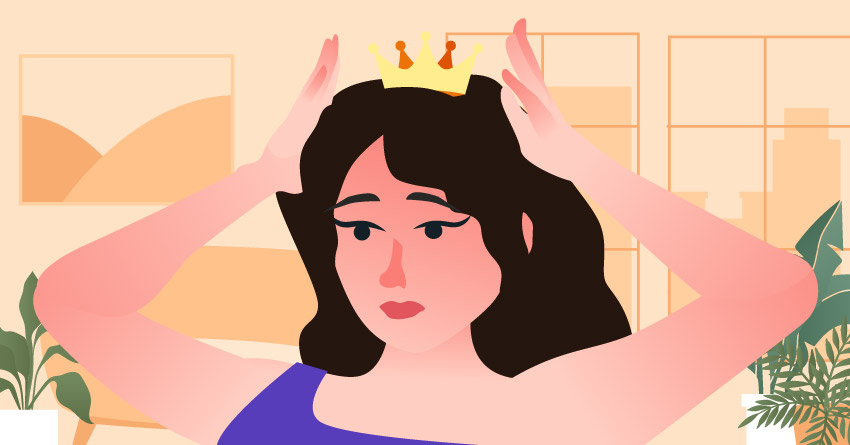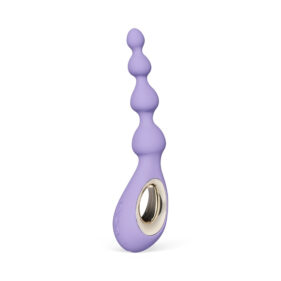
According to PyschCentral, a serial monogamist is “a person who moves from one romantic relationship to another very quickly, spending as little time single as possible.”
This definition is the same as in most sources, but there’s still ambiguity left in the meaning since it’s a colloquial word (slang), and there’s no standard to base it on.
Some people see serial monogamists as those who jump from one short-term relationship to another, but some folks think that those who jump from one long-term relationship to another relationship are more linked to serial monogamy. There’s also no number of long-term or short-term relationships that could determine whether a person is a serial monogamist.
However, most people do agree that serial monogamists have shorter gaps of singlehood—some of them date about one to two months after their previous relationship.
Now, it’s challenging to identify if someone else is a serial monogamist since most people don’t fully disclose their relationship history. However, you’re the best judge of your own patterns, and that’s why this guide focuses on you.
Do you think you’re a serial monogamist, or feel you might be heading in that direction? If so, we’re here to help you explore the signs, potential causes, and ways to break the cycle.
Signs That You’re a Serial Monogamist
While these signs are often associated with serial monogamists, remember you don’t need to check every box to identify as one, nor does relating to a single sign mean you’re already one. We also recommend talking it over with a trusted friend or therapist to get an outside perspective on whether you’re truly showing these patterns or if it’s more about your mindset.
1You start seeking a new relationship right after each breakup.

When we say seek, it doesn’t necessarily mean you’re out and about and already searching for a boyfriend. Most of the time, it can be as simple as installing a dating app or liking the posts of people who were interested in you before. Even if the wounds of the past were still aching, there’s an indescribable itch to meet new people and cultivate a potential relationship.
Now, doing this doesn’t automatically mean that you’re a serial monogamist, as some people do install apps and try to flirt with people right after a breakup as a way to distract themselves.
-
₱99.00
-
Original price was: ₱190.00.₱165.00Current price is: ₱165.00.
2Your relationships get serious too fast.

Take a look back on your previous relationships. How soon do you say “I love you” to the person you’re dating? Did it only take weeks before you made things official? How soon did you move in together or introduce them to your family? If you’ve done it all sooner than most people do, then you might be a serial monogamist.
Serial monogamists tend to move things quickly in a relationship. Some people will hard-launch their partners on social media after weeks of dating, then eventually get into a living-in arrangement after a few months. They rush things out for various reasons, one of which is their fear that this person might slip away if they don’t commit immediately, or in some cases, they’re just excited not to be alone again.
-
₱12,900.00
-
₱4,045.00
-
₱1,995.00
-
₱4,045.00
3You pour all your energy into your partner.

Because serial monogamists don’t spend that much time alone, they don’t get the chance to know themselves and let their individuality thrive—they invest all of their energy into the relationship.
In some cases, they go with whatever their partner wants. If they’re dating someone who is outdoorsy, they might start going on hikes with them. If their partner likes to go out and party, they’ll also become a party-goer and even change their “aesthetic” to fit in the crowd.
Here’s the thing, it’s okay to be interested in your partner’s interests. After all, trying out each other’s hobbies can be a great bonding experience. But if you’ve never done something by yourself and go along with whatever your previous or current partner likes to do, that might be a sign of serial monogamy.
4You stay too long in unhappy or toxic relationships.

Do you stay in a relationship even though you’re no longer happy with it? Do you try to make it work even though things have gotten toxic?
Most people stay in unhappy relationships, but it’s the norm for serial monogamists. They’re afraid they can’t find someone else after the breakup, so unless there’s a potential date or their partner is already pushing to end the relationship, they might stay longer than they desire.
5Your friends tease you about moving on quickly.

Another sign that you’re a serial monogamist is if your friends like to tease you whenever you’re getting into a new relationship. Of course, it’s natural for friends to tease and joke around, but if their remarks focus on how quickly you move on or the number of partners you’ve had so far, you might be engaging in some unhealthy dating patterns.
Is it Unhealthy?

Before we discuss the possible causes of serial monogamy, let’s clarify that being a serial monogamist doesn’t mean that you’re a bad or toxic person. In fact, most serial monogamists are incredibly faithful and loyal to their partners—it’s not necessarily a major red flag.
However, jumping from one relationship to another can be incredibly unhealthy mentally and emotionally. You don’t have the time to fully heal yourself in the relationship, which can then manifest into a new relationship. That’s why some serial monogamists have certain patterns in their relationships; they’ve never gotten the time to be with themselves and analyze the mistakes in their prior relationships.
This is why it’s highly recommended that you take sufficient time to rest and reflect after a breakup. Not only is it good for you, but it’s also good for your future partner, as you’ll bring less baggage into the relationship.
Potential Causes
What makes someone strive for continuous relationships? Here are some of the possible causes:
1Low Self-Esteem

People with low self-esteem constantly need external validation. Due to unfortunate circumstances from their childhood and environment, they may believe they’re not worthy enough. Being in a relationship helps them negate those feelings. Having someone constantly shower them with love and affection also makes you believe they’re good enough.
Low self-esteem is also one of the primary reasons serial monogamists focus on their partner’s interests instead of sharing theirs— they believe that their hobbies or interests aren’t as fun enough.
2Commitment Issues

Some serial monogamists may struggle with commitment issues stemming from past trauma or deeply ingrained beliefs they grew up with. While they enjoy the validation and benefits of being in a relationship, they may not have a positive outlook on the concept of commitment itself. This can create an internal conflict where they crave connection but feel hesitant or wary of long-term commitment, often leading to cycles of intense but short-lived relationships.
3Mental Health Issues

Certain mental health disorders, such as Borderline Personality Disorder (BPD) and Relationship Obsessive-Compulsive Disorder (OCD), are sometimes linked to patterns of serial monogamy.
According to the Cleveland Clinic, people with BPD often experience an intense fear of abandonment, which, combined with mood swings and impulsive behaviors, may lead them to move quickly from one relationship to another. This impulsivity and emotional intensity can make it difficult for them to maintain long-term relationships, potentially contributing to a cycle of serial monogamy.
Meanwhile, people with Relationship OCD tend to become obsessive about their relationship, frequently questioning if their partner truly loves them, if their needs are being met, or if they genuinely love their partner. This constant worry and overthinking can create tension, often leading to conflicts that may ultimately result in a breakup.
-
₱1,995.00
-
₱7,500.00
-
₱1,245.00
-
₱1,495.00
4Attachment Issues

Some serial monogamists have an insecure attachment, which VeryWell Mind describes as “characterized by a lack of trust and a lack of a secure base.” The same source also mentions that “People who develop insecure attachment patterns did not grow up in a consistent, supportive, validating environment.”
People with insecure attachment styles often grow up without having their emotional needs fully met. For instance, they might have been raised by a single, busy parent or parents who weren’t expressive or emotionally supportive. As a result, they may look to future relationships to fill this gap, seeking the care and attention they missed. This can make it difficult for them to stay single for long, as being alone may trigger feelings of abandonment.
5Striving for Perfection

Surprisingly, some people become serial monogamists not due to trauma or self-sabotage but because they’re searching for the “perfect” partner and relationship. When challenges or boredom arise in their current relationship, they quickly move on, hoping the next person will be the ideal partner who won’t make mistakes or disappoint them.
This creates a constant loop of entering relationships, breaking up when expectations aren’t met, and then quickly dating again in search of the ideal partner.
Ways to Break the Pattern
Being a serial monogamist may not seem like a big deal now, but it can have serious effects in the long run. Finding someone willing to commit may become challenging. By not taking the time to reflect on the mistakes and lessons from past relationships, you may be slowing your healing process, which can impact your current or future relationships.
With that in mind, here are some ways to help break the cycle.
1Rest, reminisce, and reflect.

If you’re single right now, keep it that way for at least a year. Use this time to reflect on past relationships, understand what contributed to each breakup, and truly get to know yourself. Without a partner to lean on, ask yourself: What do you enjoy doing? Which hobbies resonate with you the most? Being single allows you the space to explore and deepen these interests.
Trust us, the more time you spend with yourself, the more independence you’ll gain and the less dependent you’ll feel in future relationships. It’s also an ideal time to reconnect with friends and family, strengthening relationships beyond romantic ones.
-
₱2,695.00
-
₱2,695.00
-
Original price was: ₱4,745.00.₱4,270.50Current price is: ₱4,270.50.
-
₱1,495.00
2Seek help from a therapist.

Navigating your emotions and understanding patterns alone can be challenging in most cases. That’s where a therapist comes in. A good therapist offers a fresh, unbiased perspective on your relationships and helps you compartmentalize issues that may feel overwhelming. With their guidance, you can better recognize the habits and beliefs that may hold you back.
Takeaway
It’s normal for people to enter relationships and, when things aren’t working, decide to end them and move on. However, for serial monogamists, this pattern goes beyond occasional breakups—it becomes a recurring cycle. For them, jumping from one relationship to another has become a natural response to discomfort or dissatisfaction.
Breaking this pattern can be challenging, but recognizing it is the first step toward healing. So, for those who’ve realized that unhealthy patterns are affecting their dating life, take a moment to acknowledge this significant step—you’ve recognized the problem. Now, the next part of the journey is to take a break and unlearn the unhealthy beliefs that led to these patterns of attachment in the first place.
By giving yourself the time and space to reflect, you can rebuild a healthier relationship with yourself and, eventually, with others.


















